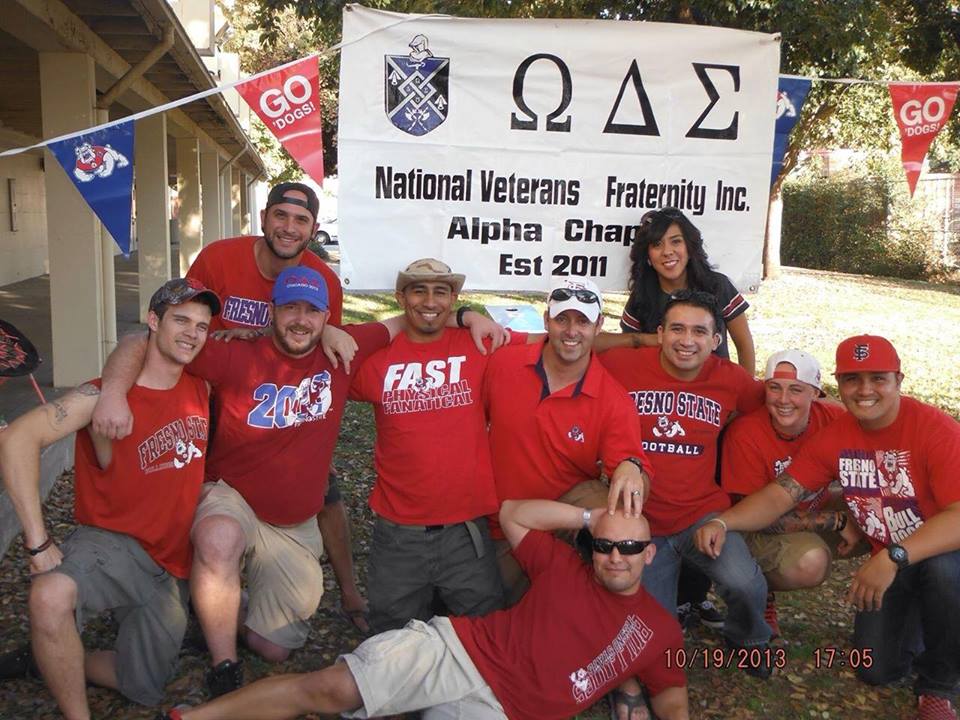by Jose Guerrero, CFILC Creative Designer & Web Developer
 Re-integrating into civilian society is not an easy task for any veteran, let alone a veteran with a disability. Fortunately through programs, benefits, and support groups, this veteran managed a moderately successful transition. One might ask – why only moderately? Well, for as many programs as I did use, it sometimes felt like there were just as many, if not more, that I was unaware of or didn’t quite qualify for.
Re-integrating into civilian society is not an easy task for any veteran, let alone a veteran with a disability. Fortunately through programs, benefits, and support groups, this veteran managed a moderately successful transition. One might ask – why only moderately? Well, for as many programs as I did use, it sometimes felt like there were just as many, if not more, that I was unaware of or didn’t quite qualify for.
Doing my research I knew to start filing my disability claim even before separating from the services. My local county veteran’s office helped me file my claim as well as gave me advice on what to expect from the process. They warned me that an 8 – 12 month delayed turnaround isn’t unheard of. Shortly after my visit to the county veteran’s office, I went to the nearest VA hospital to apply for medical coverage. I found that the residual income from the military in my financial statements prevented me from qualifying for their minimal cost services. Once that income wears off and disappears from one’s tax forms one is encouraged to re-apply and be re-evaluated for a better rate.
Pro Tip: Get your ailments and injuries documented throughout your enlistment. It helps build a solid case for when you file your claim. Also, start filing your claim before even separating.
I started going to college full time under the new Chapter 33 Post 9-11 GI Bill and got a part time job on the side delivering car parts for a little spending money. Unfortunately, that job did not last and I ended up living off the GI Bill alone. Thankfully by then I started receiving my disability payments which was enough to take care of groceries for the month.
Pro Tip: If you have at least a 30% disability rating you qualify for a Voc Rehab funded undergrad degree or technical trade school. I strongly urge you to use this so you can save your MGI Bill for a master’s program or even transfer the GI Bill over to your immediate family.
When I first started college however, I was enclosed in a small dark studio apartment with no friends, no family, and no money. This put a real damper on my spirits. Not knowing whether I was going to be another statistic or not, it felt like I was in limbo. In the pit of despair I came across this YouTube video: http://youtu.be/WTFnmsCnr6g. I saved the audio and set it to my phone’s alarm ringtone. Let me tell you, there is no better way to get a hard day started!
Pro Tip: Look up this YouTube video, take in the message, and incorporate it into your daily life.
Being involved with campus veteran organizations of various types also helped battle the blues. Especially being part of Omega Delta Sigma, which is a veteran’s service fraternity. Not only did they provide the camaraderie of like-minded individuals facing the same hardships as me, but through them I was able to connect and volunteer with the community. While involved with the fraternity I made it a mission to use my skill set to help the fraternity search out fellow student veterans that were at risk of falling through the cracks.
Pro Tip: If you are looking to help out student veterans directly check out http://omegadeltasigma.com. You can also donate to the local California chapter by clicking HERE. Unlike other large overhead programs, whose names will go unmentioned, a greater percentage goes directly to the support of student veterans by funding brotherhood bonding events like picnics, baseball games, and other morale boosting activities.
I’m hoping that blogging a short list of some of my experiences was enough to help out some service members nearing the end of their tour or recently separated veterans not knowing where to turn next. It’s not all fair winds and following seas out here but the more difficult the battle is, the sweeter the taste of victory. As for everyone else, thank you for your continued support. We are lucky and thankful to grow up in an era that celebrates and appreciates its service members.





